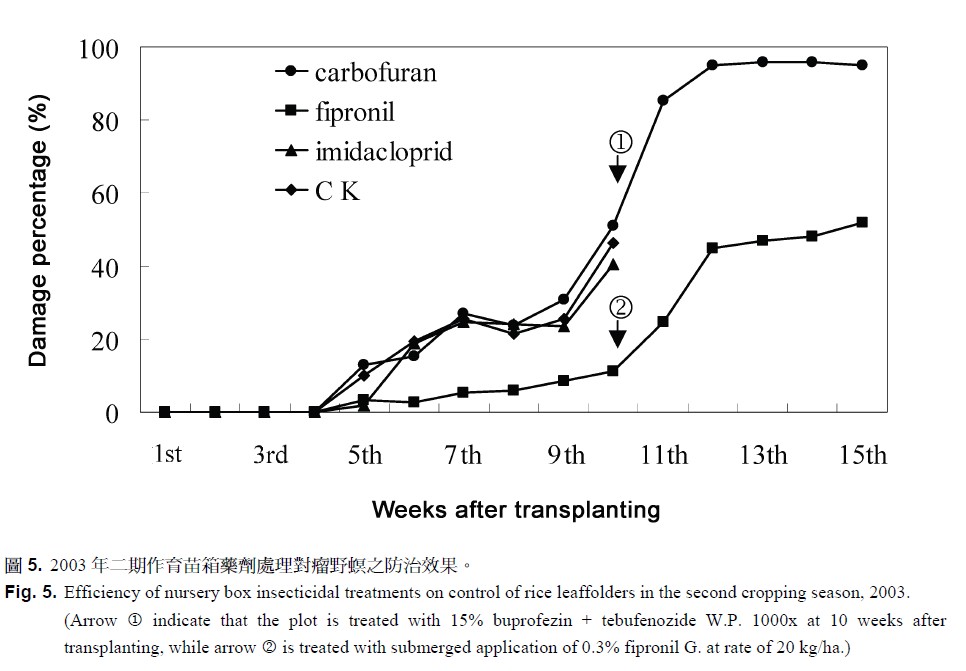All issues

Author:Shou-Horng Huang, Ching-Huan Cheng and Yung-Hsiung Cheng*
Abstract:
The experiment was conducted to evaluate the efficiency of insecticides such as fipronil, imidacloprid and carbofuran used in nursery-box treatment on control of early season insect pests of rice in paddy field as well as their adverse effect on predatory natural enemies. The experiment conducted from 2002 to 2003 showed that 2% imidacloprid G. at rate of 50g/box was effective for control of rice planthoppers and rice stem borer for about 17 and 9 weeks in the first and second cropping season, while the treatment was poor for control of rice leaffolder. On the other hand, 0.3% fipronil G. at rate of 120 g/box was effective for control of rice planthopper, rice leaffolder and stem borer for 17 weeks in the first cropping season and 7 to 9 weeks in the second cropping season, but it was poor for controlling rice leathoppers. 3% carbofuran G. at rate of 50 g/box lasted about 10 and 4 to 5 weeks for controlling the rice plant-leafhoppers, stem borer and rice leaffolder in the first and second cropping season, respectively. The efficiency of fipronil G. and carbofuran G. used in nursery box treatment lasted longer efficiency for control of rice insect pests then that of conventional application. Based on the appearing period and the population density of predatory natural enemies in the treated plots, it shows that the tested chemicals used in nursery box treatment did not have distinctly adverse effect to the predatory natural enemies. From present study, it is clear that the nursery box insecticidal treatment was not only effective for control of early-season insect pests but also could lower the pests to infest the crop in the mid- and late stage when a proper insecticide is used. However, it also shows that the nursery box insecticidal treatment alone is not adequate to protect the crop through a cropping season with especially in the second cropping season. One more applications from mid- to late booting stage of rice have to consider when it is needed.
Key words:Nursery box insecticidal treatment, Rice insect pest, Predatory natural enemy
Download:![]() PDF Links
PDF Links
- 1. Development of Tractor-Mounted Seedling Transplanter for Sweet Potato
- 2. Synergistic Effect of Additional Gas on the Toxicity of Phosphine to Sitophilus oryzae and Sitophilus zeamais (Coleoptera: Dryophthoridae)
- 3. Effects of Temperature and Solar Radiation on Growth Traits and Plant Elements in Purple Leafy Sweet Potato
 Submit your manuscript
Submit your manuscript
 Guide for authors
Guide for authors